Hidden homelessness in young people
This research explores how young people reach a state of homelessness.
YouthNet led a six month, collaborative research project with leading housing experts and young people to explore the role that digital support can play in supporting those young people experiencing homelessness.
Insights
To read the full insights, click here.
-

We were always arguing
Homelessness in young people is most often the result of family breakdown driven by arguments precipitated by cultural differences, abuse, bereavement or the arrival of a new partner.
-

I was always angry
Many young people describe themselves as ‘always angry’ and as a result find it hard to make reasoned decisions about their lives and prone to rash reactions when under stress.
-

I never felt at home anywhere
Many young people who have experienced homelessness describe feeling like outsiders – isolated and set apart from peers at school or their family even before they leave home.
-

I felt trapped and out of options
Many young people who experience homelessness describe feeling trapped and with no future. They feel that leaving home was the only way they could regain control over their lives.
-

It all happened so quickly
When young people leave home or get thrown out, it is almost always very sudden, leaving them unprepared for a life without a roof over their head and often without warm clothes or money.
-

I can’t admit I’m homeless – Even to my best friend
When young people are sofa surfing or staying in temporary accommodation, they feel so deeply ashamed that they keep their real circumstances hidden, preventing them from getting the help and support they need.
-

Every day that passed made it harder for me to cope
The longer young people spend “sofa surfing” or living in precarious or insecure accommodation, the more their ability to cope and recover from their situation suffers.
-

I can’t trust anyone
The isolation that comes with having no where permanent to stay is terrifying. It comes with a sense that no one knows where they are, what they are doing or even whether they are alive.
-

I have nothing to do and nowhere to go
Many young people talk about the sheer boredom of the unstructured days when homeless.
-

Homelessness never leaves you
Even when they are no longer homeless, the feeling of homelessness never leaves young people and they are left facing real challenges in finding a way forward with their lives.
Our approach
There are some 80,000 young people identified as homeless in the UK. YouthNet was concerned that changes to the welfare benefits system, the lack of affordable housing stock and more challenging jobs market would combine to turn this tragedy into a crisis of homelessness for a generation.
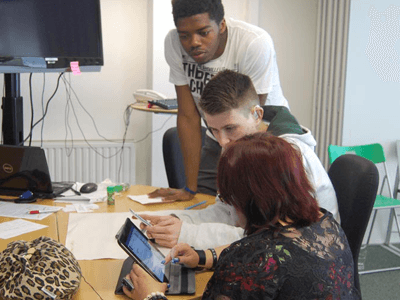
Challenges
YouthNet received funding from the Nominet Trust to explore the following challenges:
- To develop information and support that helped young people understand the factors that may lead to homelessness.
- To identify how we could transform the existing support offered to young people on their housing issues using a more holistic approach (for example, by helping them unpick interconnecting issues).
- To explore how digital can help by identifying where digital services are valuable, how they complement other services and where there is overlap
- To make recommendations for development of TheSite and associated digital products to address homeslessness.
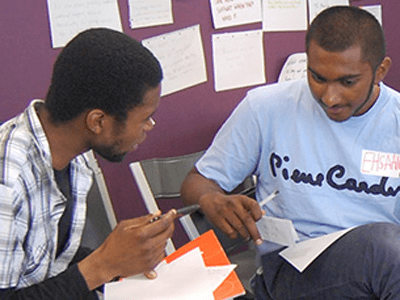
Exploration and co-creation stages
This stage was divided into three different steps, using quantitative and qualitative methodologies. Read more.
Product concepts
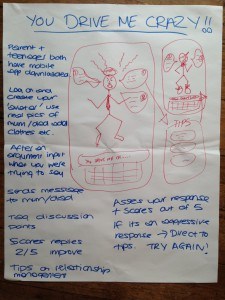
You Drive Me Crazy
The Need – parents a nightmare
I’ve just had a row. I feel really bad about it and wish I could get on better with my parents. We argue all the time, we can’t talk to each other. I feel they just don’t understand.
The Idea – ‘Mediation Diversion’
Getting on with your parents can be hard particularly after a row. This gives you a better way of talking to them – a way that takes the heat out of a situation. This gives you time to calm down, think and helps you keep your relationship going with them.
Some Details Choose from a range of pre-set phrases and images and send a text to tell them you just need some space (for example).
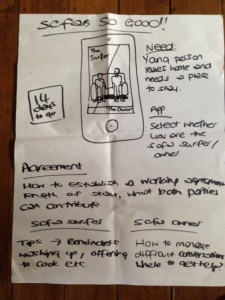
Sofa So Good
The Need – ashamed and alone
Living in many places, moving around a lot, crashing at people’s houses… friends’ sofas… relatives places. Feel so ashamed. Don’t want anyone to know that I have nowhere to go – don’t want to be a burden or for people to feel differently about me. Always having to think where next. This can’t last.
The Idea – ‘Sofa Surfing’
The practical and emotional self-help guide if you find yourself sofa surfing but don’t want to talk to anyone about it.
Some Details
Help with the shame and embarrassment. How to make it work with your friends, how not to burn bridges, things you can do to make it easier for you and your friends. Advice on how to negotiate with your friends in a way that gives you a role and justifies staying there. List of contacts they can reach out to – places they can go. Anonymous. How to ‘surf’ your way into homeless organisations. What kit you will need.
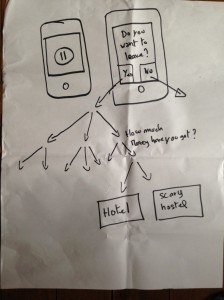
Weigh It Up
The Need – Can’t think straight
I feel I just have to get out – right now. I can’t take it any more. Anything’s got to be better than this. I feel desperate and am scared about what is going to happen to me.
The Idea – Look at the Pros & Cons
The app that stops you doing anything in too much of a rush, but slows you down and takes the heat out. It makes you think it through first by helping you weigh up the pros and cons before leaving – what might happen if you do leave vs. why you might be better staying.
Some Details
Gives you presets of pros and cons to enter – you then weigh them up against each other. E.g. The things home can give you – a roof over your head, somewhere to sleep. Maybe also helps you slow your breathing, your pulse.
Cycle of Innovation Event
The findings from our cycle of innovation on Hidden Homelessness were presented at an event hosted by YouthNet and the Nominet Trust at the London School of Economics on the 27th of November 2013. The event entitled Old problems, new solutions: Developing digital services for social good explored best practice in the development of digital products in the Third Sector and particularly the key role of collaboration between users, funders, corporates and sector colleagues in the design and delivery of innovative online and mobile solutions.
Workshops and Personas
We ran workshops with young people utilizing personas to gain insight into their world and the issues that affected them.
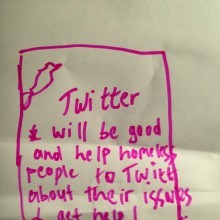
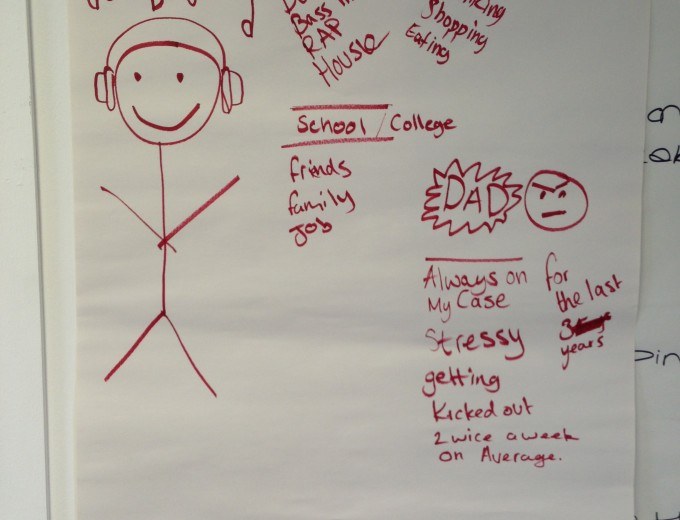
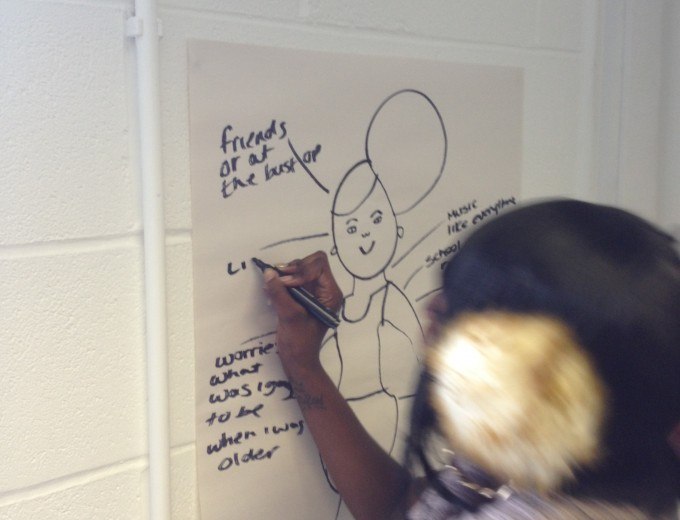
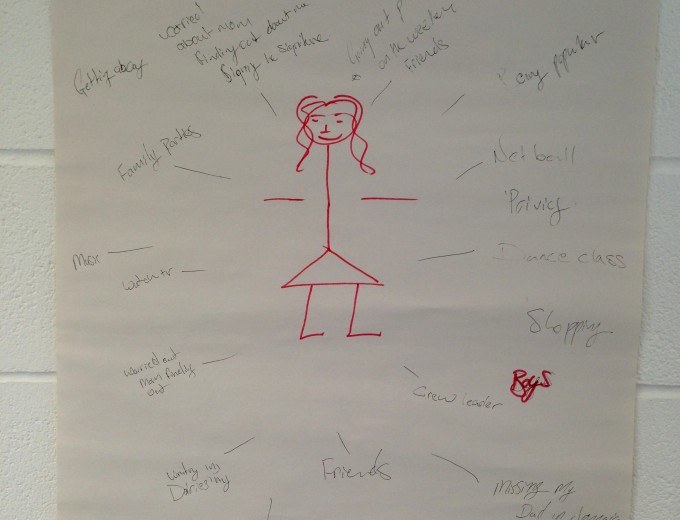
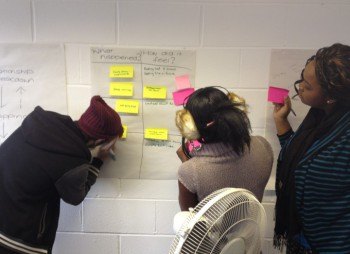
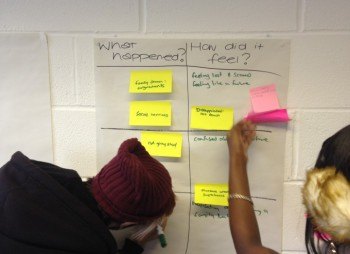
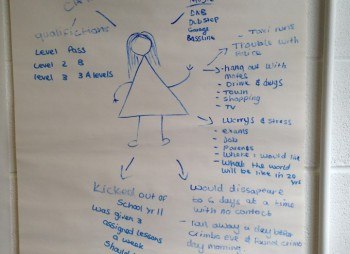
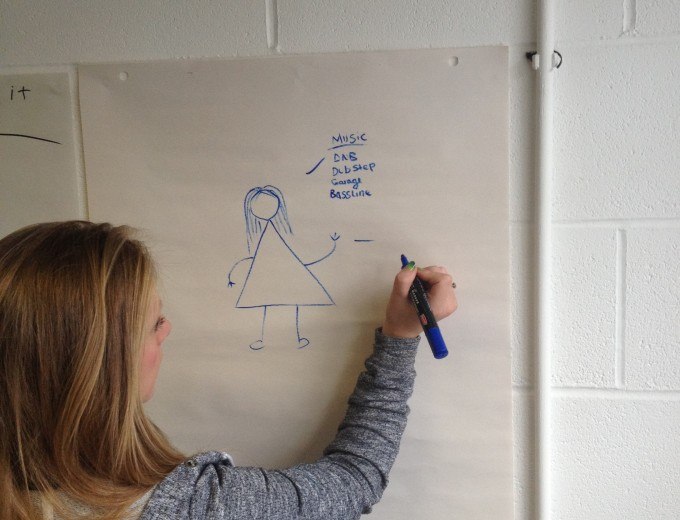
Many thanks to the following organisations and young people for their contributions…
The event panellists:
Chair: Dan Sutch – Head of Development Research, Nominet Trust
Billy Dann – UK Programme Manager, Comic Relief
Emma Thomas – Chief Executive, YouthNet
Dr Will Venters – Lecturer in Information Systems, LSE
Richard Griffith – Youth Development Co-ordinator, Peabody Trust
YouthNet also wishes to thank TheSite’s leaders, The National Youth Reference Group, The Centrepoint Parliament and all of the other young people who took part in workshops and completed surveys.

